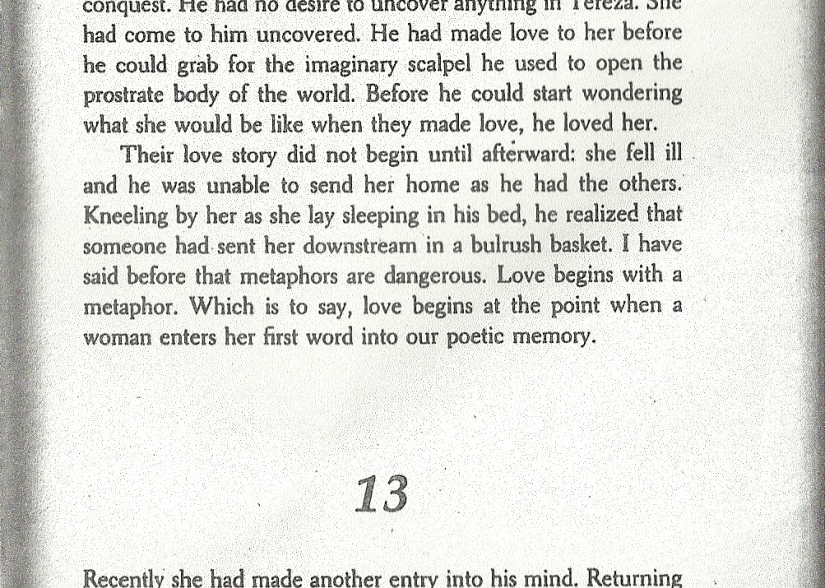One of the reasons why I love to experiment with “found poetry” is that it allows me to make an artful experience last longer.
I just finished reading Milan Kundera’s “The Unbearable Lightness of Being,” for instance, and was struck often throughout by meaningful gems I wish I could spend more time contemplating.
In the absence of a classroom full of fellow philosophers or a literature professor, I turn to found poetry, otherwise known as “erasure poetry” or “blackout poetry.”
There is no correct way of digging in, but this is how I’ve been doing it with books. (You can also find poetry in songs or in newspaper articles. Why not?)
Instructions for finding poetry:
1. Xerox copy the page of the book or the document that stopped you in your tracks.
2. Read it over a few times. Perhaps, out loud.
3. Listen.
4. Circle with pencil the words calling out to you.
When you’re certain (or certain enough) you’ve dug out something new or relevant or useful from the beauty or wisdom already expressed by the author, smudge out the words around those in paint or black ink or, like Mary Ruefle, with white out.
5. There. You’ve found something. A poem, perhaps, or an idea or a pathway.
Something.
Like most creative writing, a first draft of a found poem might only be a writing prompt for something more significant.
At the very least, you got to spend more time with beauty or wisdom … and upcycled it into your own life.



Jen,
What a beautiful post! I love, love your closing sentence about spending time with beauty or wisdom. So funny, I just wrote about lightness of being today as well,
Must be in the air 🙂
Wishing you peace ~ Allison
LikeLike
Thank you Allison. Going to check out your lightness post in a bit.
LikeLike
That’s heavy…..
Is something wrong withe the Earth’s gravitational field?
LikeLike
Read Kundera if you want heavy. (And i get your reference.)
LikeLike
What a fabulous idea – thanks for sharing
LikeLike
I can’t wait to see yours, Ginz.
LikeLike
🙂 I will definitely try! 🙂
LikeLike
Great lesson, Jen! Thanks to you, I keep thinking I must try another one. Maybe today is the day…
LikeLike
Reblogged this on Noetic Shades and commented:
I’m definitely going to try this!
LikeLike